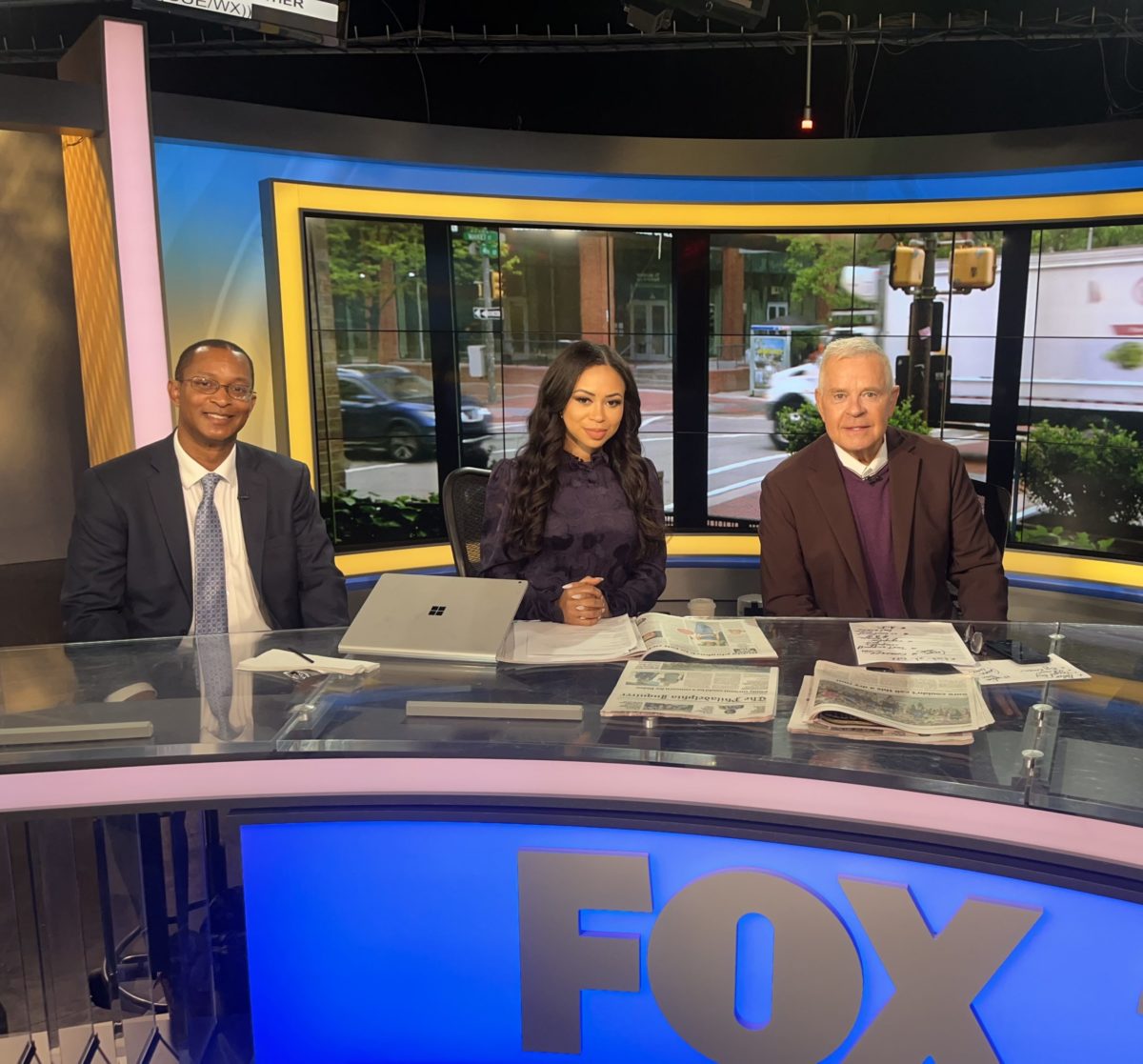Protecting vulnerable older adults from risk
PHOTO CAPTION: On May 6, 2024, PCA President and CEO Najja R. Orr, DBA, FCPP, (left) joined Fox 29’s Alex Holley and Mike Jerrick for Good Day Philadelphia to discuss older adult scams, underscoring the importance of raising awareness about elder fraud.
By Najja R. Orr, DBA, FCPP, PCA President and CEO
One of the greatest responsibilities we have as a society is to protect our most vulnerable citizens. As individuals, we also have the duty to respect and honor our elders. To achieve both goals, we must do all that we can to prevent and stop the abuse or mistreatment of older adults.
According to the World Health Organization (WHO), 1 in 6 people aged 60 or older has experienced some form of abuse in community settings during the past year.
Elder abuse takes many forms including physical abuse, emotional or psychological abuse, sexual abuse, financial exploitation, abandonment, and caregiver neglect or self-neglect. (To learn more, Click Here>>)
With the prevalence of elder abuse, there is a good chance that someone you know or encounter could be impacted and in need of help.
One way to make sure the older adults in our lives are safe and secure is to maintain regular contact with our older family members, friends, neighbors and colleagues. If you normally see someone at a regular location, such as a park, grocery store, senior center or church, and they have been absent without warning, reach out to find out if they are okay.
When you spend time with older loved ones, look for injuries, including bruises, cuts, burns or bandages. Even if you are not in person, you can ask how they are doing and listen for any significant changes in mood or behavior that seem out of character for the person. Are they suddenly depressed or frightened? Do they talk about new financial troubles or “giving away” large sums of money? Are they more reserved and reluctant to talk or go out than usual?
These may be signs that an older adult is being exploited and abused, but few report it. Embarrassment, fear of retaliation or protection of a loved one may prevent an older adult from admitting to abuse. Philadelphia Corporation for Aging is here to investigate claims of elder abuse and self-neglect. If you suspect that an older adult in Philadelphia is experiencing any form of abuse, you can anonymously report it 24/7 to the PCA Helpline at 215-765-9040.
Watch: Good Day Philadelphia: FBI warns of rise in scams against older Americans




